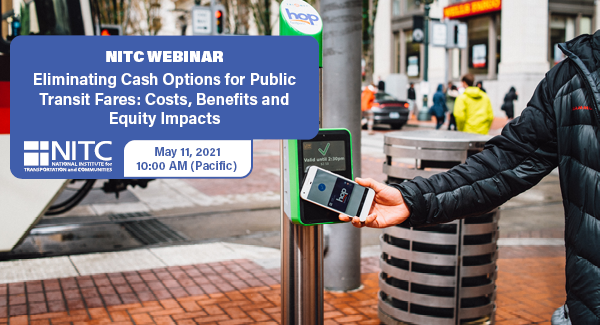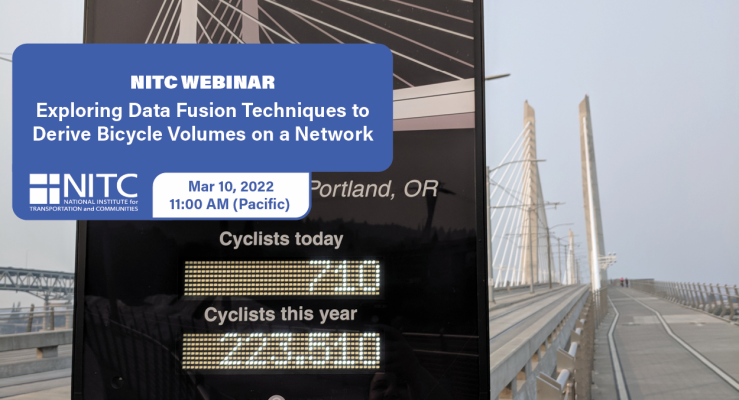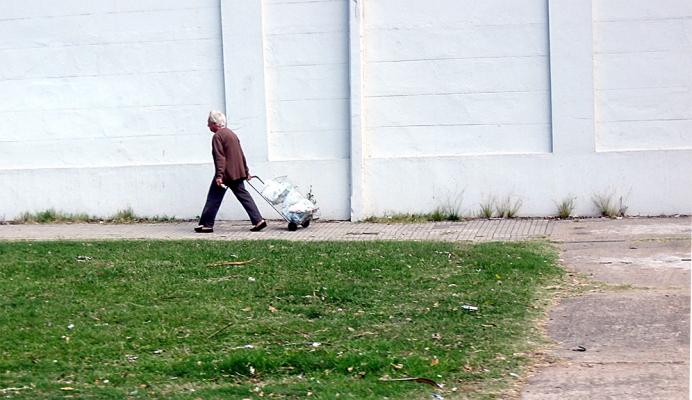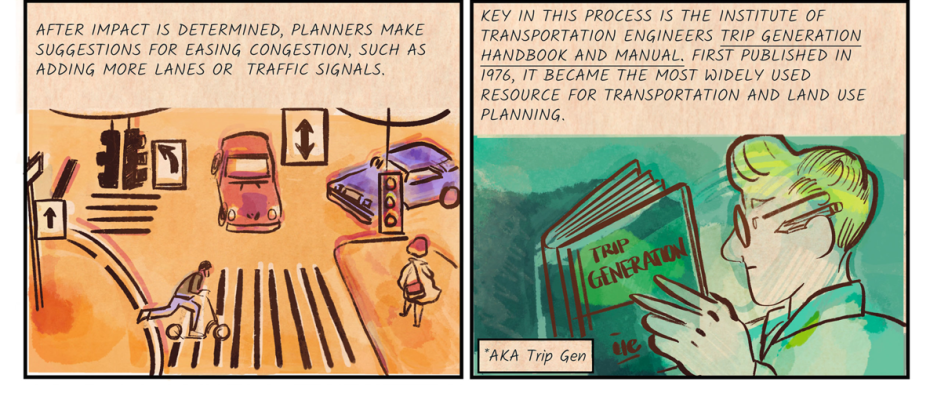PRESENTATION ARCHIVE
OVERVIEW
Many transit agencies plan to automate their fare collection and limit the use of cash, with the goals of improving boarding and data collection while lowering operating costs. Yet about 10% of adults in the United States lack a bank account or credit card, and many either rely on restrictive cell-phone data plans or don’t have access to internet or a smartphone.
This webinar will present part of a larger research project exploring these issues in the cities of Denver, Colorado, and Eugene and Portland–Gresham, Oregon. In this part, we explore the tradeoffs between reducing cash acceptance, ridership and the costs of fare collection systems. How much does it save to reduce cash acceptance, verses ridership and equity impacts?
We will also present a cost-effectiveness framework that combines a qualitative and quantitative analysis and use this model to explore case scenarios in our three cities. The model shows that adding a retail network to...
Read more*NEW* LOCATION: Karl Miller Center at PSU, 631 SW Harrison St., Room 465
*NEW* REGISTRATION: Sign up through GoToWebinar
Portland State University students will share the work they presented at the annual meeting of the Transportation Research Board (TRB) 2018:
SEMINAR VIDEO
Read more
PRESENTATION ARCHIVE
OVERVIEW
Planners and decision makers have increasingly voiced a need for network-wide estimates of bicycling activity. Such volume estimates have for decades informed motorized planning and analysis but have only recently become feasible for non-motorized travel modes.
Recently, new sources of bicycling activity data have emerged such as Strava, Streetlight, and GPS-enabled bike share systems. These emerging data sources have potential advantages as a complement to traditional count data, and have even been proposed as replacements for such data, since they are collected continuously and for larger portions of local bicycle networks. However, the representativeness of these new data sources has been questioned, and their suitability for producing bicycle volume estimates has yet to...
Read moreThe video begins at 0:34.
View slides
Speaker: Joseph Broach, Ph.D. Candidate, Portland State University
Topic: Trick or Treatment? Impact of Route-Level Features on Decisions to Walk or Bike
Summary: Some travel routes attract people walking and cycling, while others may scare them away. What features of street environments are most important, and how do available routes affect decisions to bike or walk on a specific trip?
Research to date has focused on either large-scale areal measures like "miles of bike lane nearby" or else has considered only shortest path routes. Neither method is suited to capturing the impact of targeted route-level policies like neighborhood greenways. This session will present a new technique for measuring bike and walk accessibility along the most likely route for a given trip. The method is applied to travel data, and results provide new insight into the relationship between route quality and travel mode choice.
The video begins at 4:13.
Wei Feng: Impacts of Economic, Technological and Operational Factors on the Economic Competitiveness of Electric Commercial Vehicles in Fleet Replacement Decisions
Electric commercial vehicles (ECV) have the potential to substantially reduce greenhouse gas emissions, noise, and pollution in urban areas. In addition, ECVs have lower per-mile operating costs and potentially lower maintenance costs. However, the initial purchase cost of ECVs is significantly higher than the purchase cost of a conventional diesel vehicle. From a purely economic perspective, there is a cost tradeoff between the low operating and maintenance costs of ECVs and their high initial capital costs. In this paper, a fleet replacement optimization framework is employed to analyze the competitiveness of ECVs. Scenarios with different fleet utilization, fuel efficiency and sensitivity analysis of ten additional factors indicate that ECVs are more cost effective when conventional diesel vehicles’ fuel efficiency is low (8.2 miles/gallon) and daily utilization is more than 54 miles. Breakeven values of some key economic and technological factors that separate the competitiveness between ECVs and conventional diesel vehicles are calculated in all scenarios. For example, in low conventional diesel vehicle fuel efficiency and low daily utilization scenario, ECVs are more competitive when their purchase prices...
Read moreGot research? Like comics? Learn how to bring the two together in this hands-on workshop.
Open to students and faculty at Portland State University, this workshop will provide an introduction to comics as a means to communicate research. Come prepared to learn about the power of comics as a communication and learning tool, some recent examples of research comics from PSU, and the comic studies program.
No previous experience in comics is necessary. Space is limited so register now!
This event is sponsored by the National Institute for Transportation and Communities (NITC), Research and Graduate Studies, and Comics Studies at PSU.
Learn more about the NITC project Communicating Research through Comics: Transportation and Land Development.
Portland State University's Transportation Research and Education Center (TREC) is home to the U.S. DOT funded National Institute for Transportation and Communities (NITC), the Initiative for Bicycle and Pedestrian Innovation (IBPI), PORTAL, BikePed Portal and other transportation grants and programs. We produce impactful research and tools for transportation decision makers, expand the diversity and capacity of the workforce, and engage students and professionals through education and participation in research.
The video begins at 2:04.
Abstract: Findings will be presented on an evaluation of two innovative bicycle facilities installed in late summer and early fall 2009 in downtown Portland aimed at providing a more separated and comfortable experience for cyclists. The SW Broadway cycle track (near PSU) and the couplet of buffered bike lanes on SW Stark and SW Oak were evaluated to understand how they are functioning on multiple levels. Each facility involved removing a motor vehicle lane by restriping to provide additional roadway space to bicyclists. The facilities were evaluated after they had been in place for approximately one year. Data collected to support this evaluation consisted of surveys of multiple user groups for each facility type, and video data collected by the City of Portland Bureau of Transportation at intersections along each of the routes to understand the facilities' impact on traffic flow, operations and user interactions.





